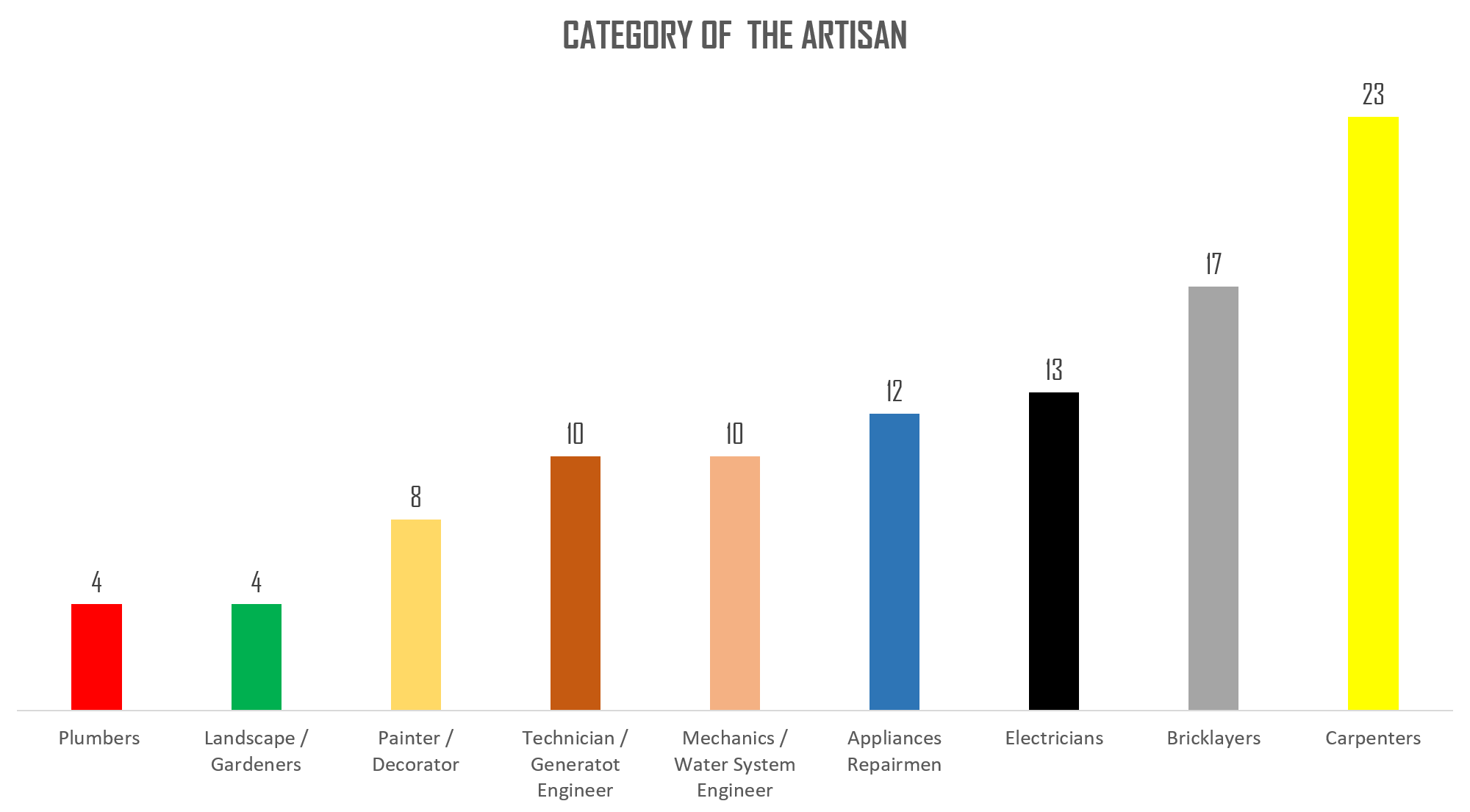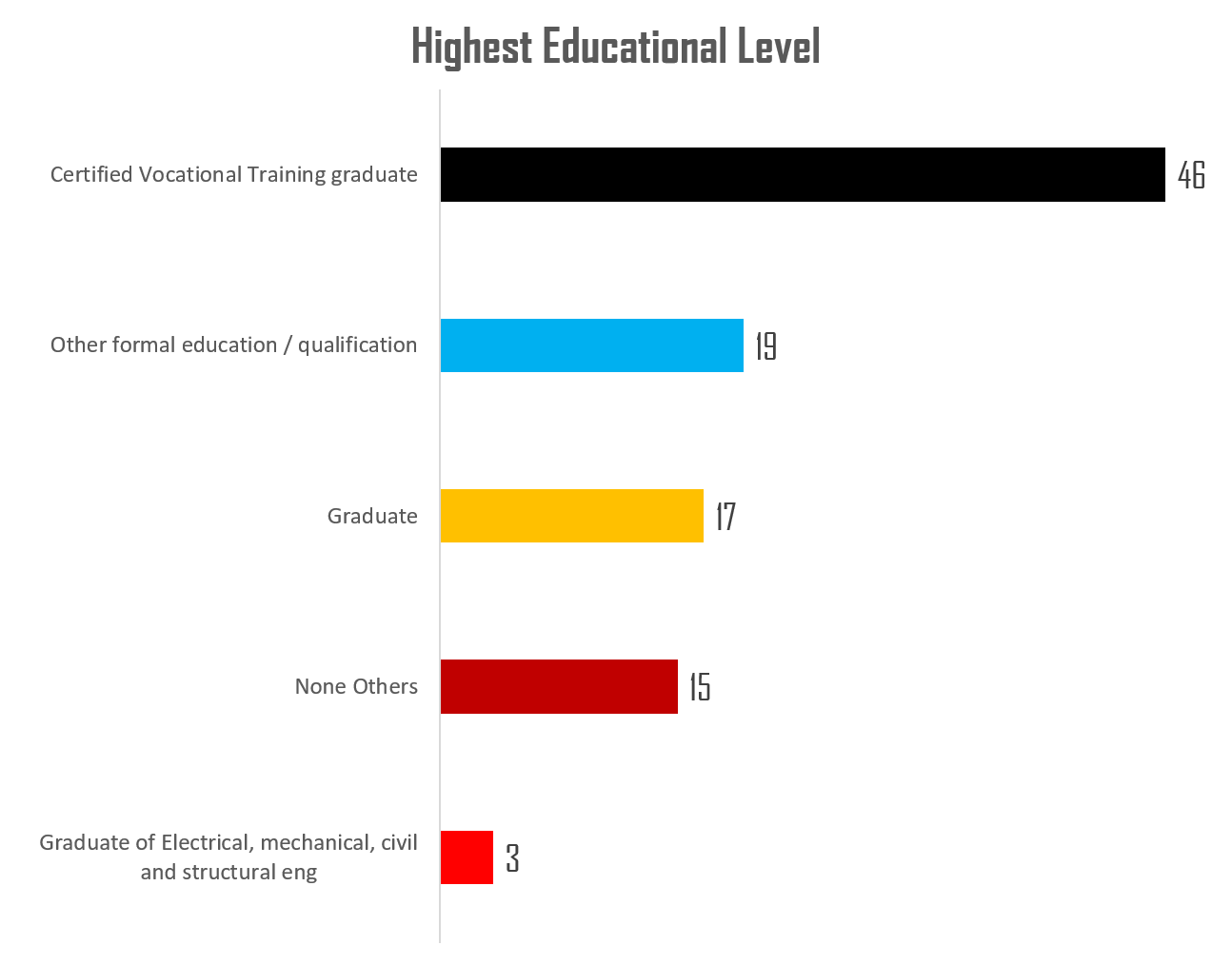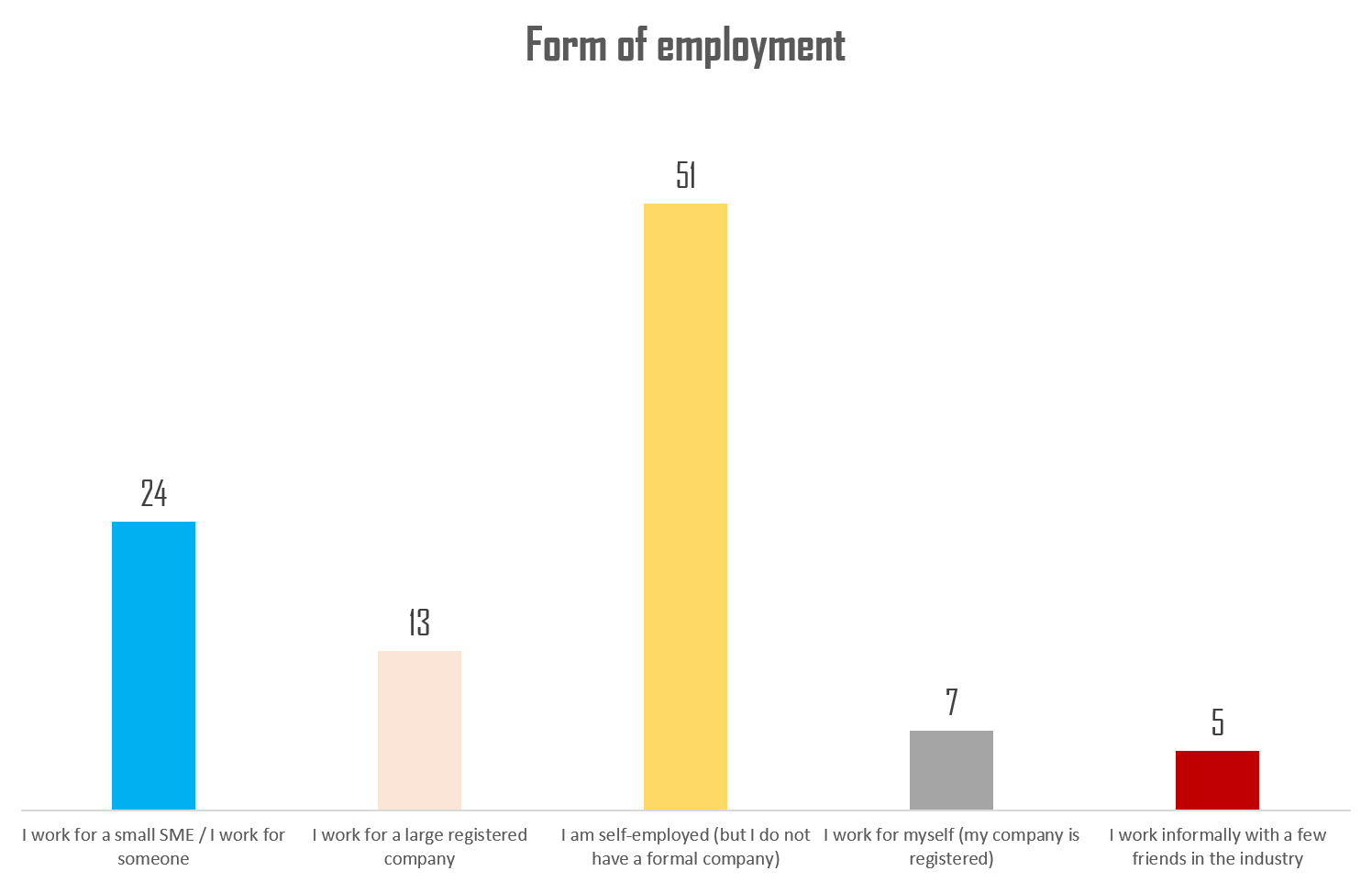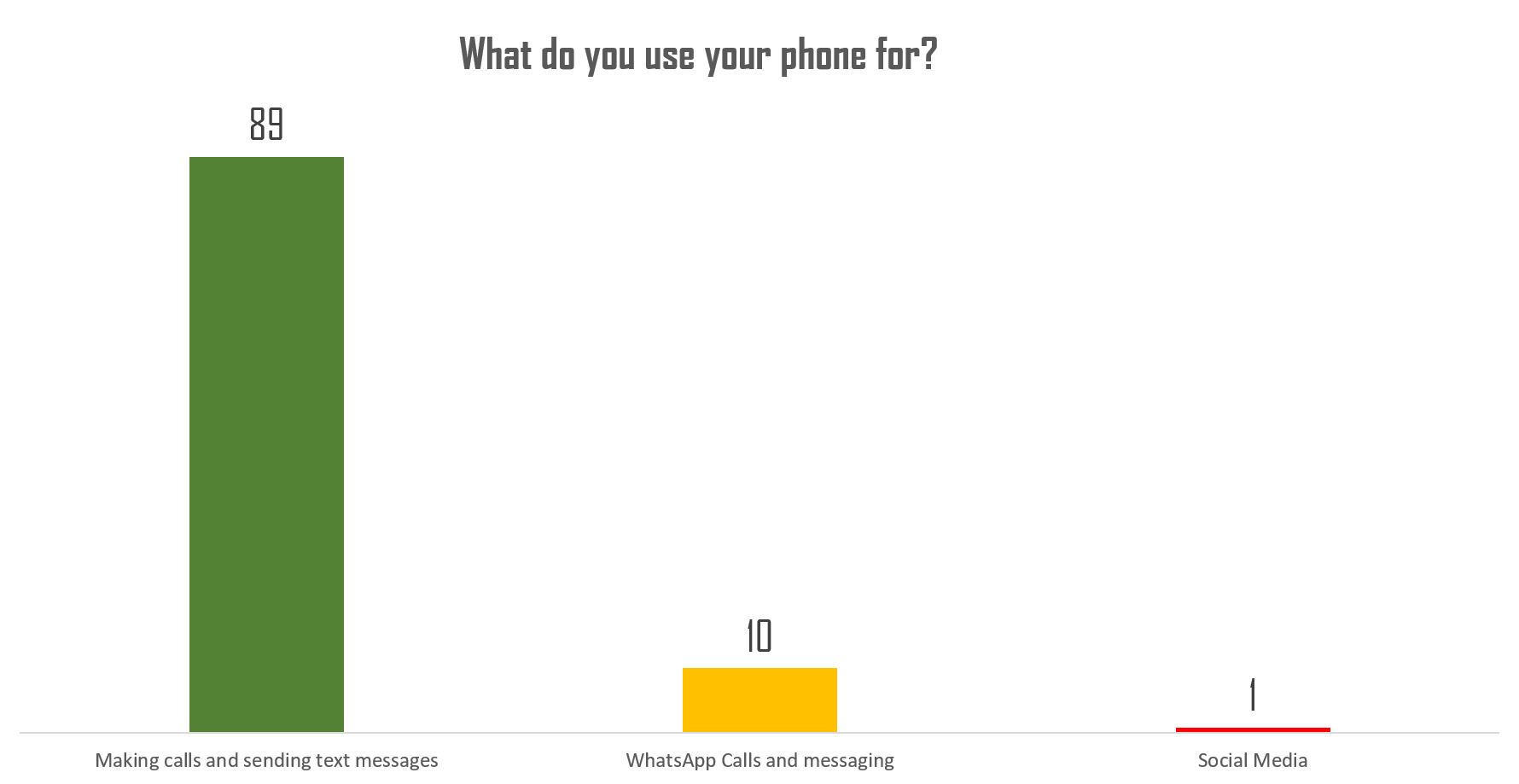To be globally or locally relevant, it is pertinent to possess a sound skill or attain a level of educational qualification, skill acquisition and economic independence are also closely linked. Evidence from the literature proclaims that skills can be obtained and gathered in many ways.
Apart from staying relevant as earlier stated, individuals acquired skills for several other reasons. These reasons could be to improve careers, sustain livelihoods, and stand out from the crowd.
This article presents an overview of Artisans, how they link skill acquisition and economic independence and ways they acquire knowledge and improve themselves in their various Vocations. The survey was conducted in Lagos and Abuja respectively with a total sample of 120 respondents interviewed through the Computer Assisted Telephone Interviewing (CATI).
The above chart displays the categories of Artisan selected and interviewed for the survey. These include Plumbers, Electricians, Carpenters, Painters, Decorators, Landscape and Gardeners, Technicians and Engineers for generators, Mechanic, Water system Engineer for the cooling system, Appliance repairmen (Cooker, Air-condition, Water Heater), and Bricklayers.
Results indicate that about one-third (46%) of the respondents had their training in the Vocational workshop. The vocational workshop embraces a structure of practicability in its learning curriculum. However, 15% acquired their training through the apprenticeship. This suggests that acquiring a skill has shifted from the apprenticeship style to a more formal means. There is no gainsaying the fact that vocational school is unrecognized, underutilized and under-equipped in Nigeria. Hence, it is an emerging area that needs to be explored.
Results on the Form of Employment disclosed that the higher proportion of the participants (51%) were self-employed. Only 24% work for small enterprises, while 13% work for Big companies. It can be deduced that focus has been diverted from a white-collar job to business enterprises. A business enterprise can contribute immensely to the growth of the country through Gross Domestics Products (GDP) which can translate to a reduction in the unemployment rate.
Currently, Nigeria’s unemployment rate is 23.01%, and it has been projected to rise to 33.01% by 2021 (Nigeria Employers Consultative Association (NECA). Giving the investor more access to a loan will adversely reduce the unemployment rate.
More than two-third, 89% of the participants affirmed that they used their mobile phone to make calls as well as sending a text message. 10% of them acknowledged that it is using for WhatsApp calls and sending a text message. However, a few of them used their mobile phone for social media. It can be deduced that information is not adequately and effectively disseminated among the Artisan. This is because their mobile phone is seriously underutilized
To obtain a quote or proposal, send an email to info@webhaptic.com





